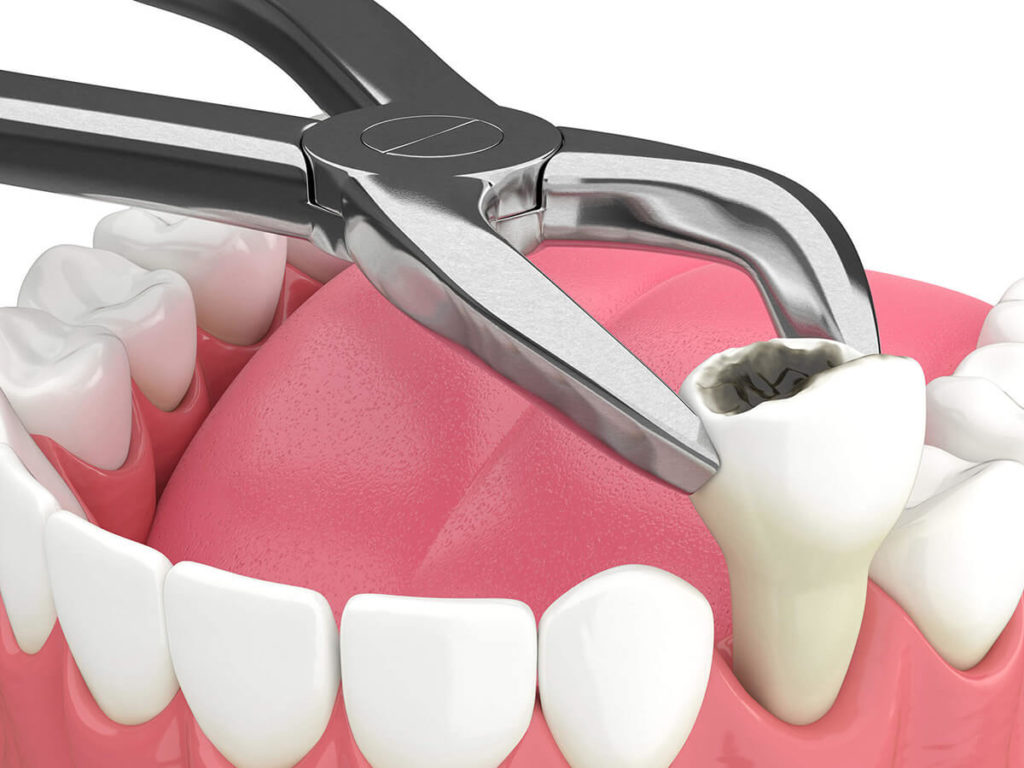Tooth Extractions
While it’s always our goal to care for and maintain your natural teeth, there are cases when removing a tooth is in your best interest. We work to make extractions as easy as possible so you can concentrate on a quick recovery.
The Process of Tooth Extraction
Tooth extraction is usually a quick process, and we will make sure that you are comfortable using anesthesia. However, recovery is a crucial part of the process. We need to ensure that we stop the bleeding and encourage proper healing immediately after the tooth extraction. This involves biting down on a gauze pad for 30 to 45 minutes to form a blood clot. It is essential to be extremely careful not to disturb the blood clot for the next 24 hours. To manage the swelling, we recommend using an ice pack on the outer cheek, followed by a warm compress to the same area once the swelling has gone down for comfort. Additionally, gentle rinses with warm salt water can help keep the extraction area clean.

-
How to prevent dry socket after tooth extraction
After getting a tooth extracted, a blood clot forms in your mouth to start the healing process. However, if this clot becomes dislodged before your mouth has fully healed, it can cause a painful condition called dry socket. Here are six tips to avoid dry sockets:
1. Avoid using straws or anything that creates suction in your mouth.
2. Do not smoke tobacco, as fast inhalation can dislodge the clot, and the chemicals in tobacco can prevent healing or cause an infection.
3. Eat only soft foods like applesauce, yogurt, and mashed potatoes for the first one or two days after the surgery.
4. Discuss any medications you are taking with your dentist to ensure they won’t affect the healing process.
5. Use proper oral hygiene to keep your mouth clean, and consider using an antibacterial mouthwash.
6. Follow your dentist’s instructions on proper oral care to speed up the recovery process.
-
When and why are wisdom teeth removed?
Wisdom teeth are the final set of molars that develop in the back of the mouth. They typically begin to emerge during late adolescence or early adulthood. These teeth are usually removed because they tend to grow at an angle that can cause crowding and interfere with other teeth. Additionally, there is often not enough space in the mouth for wisdom teeth to grow properly. As a result, around 85% of adults have their wisdom teeth removed.
-
What causes the need for tooth extraction?
Tooth extraction is the removal of a tooth from its socket in the bone. Teeth extraction usually occurs when a tooth has been broken or damaged by decay and there is too much damage for the tooth to be repaired by a filling or crown.
However, there are other reasons for tooth extraction including, extra teeth growing in that are blocking others, baby teeth that haven’t fallen out in time for the permanent teeth to come in, braces, wisdom teeth that are commonly removed or medical reasons.
Comprehensive Dental Care
We provide a full array of dental services to suit the needs of individuals and families. Learn more about our services, schedule an appointment, or contact us today.










